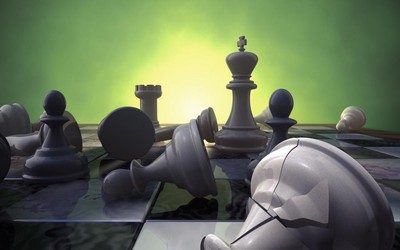
iStockphoto.com
Mastering the Endgame: Essential Strategies for Success
Welcome, chess enthusiasts, to another insightful journey into the intricate world of endgames! In this blog post, we'll delve deep into essential strategies that will elevate your endgame prowess to new heights. Whether you're a novice or a seasoned player, mastering the endgame is crucial for securing victories and outplaying your opponents. So, let's sharpen our tactics and explore the keys to endgame mastery!- Pawn Endgames: The Foundation Pawn endgames often appear deceptively simple, yet they hide complexities that can sway the outcome of the game. Understanding pawn structures, key squares, and the concept of opposition is paramount. Practice converting pawn advantages into wins and defending tenaciously in seemingly drawn positions. Remember, in the endgame, every pawn matters.
- King Activity: The Royal March As the board clears and kings become active pieces, their role becomes crucial. Centralizing the king, activating it to support pawn pushes or participate in piece activity, can often be the deciding factor. But beware of getting your king trapped or exposed to checks. Balance aggression with caution to maximize its impact.
- Piece Coordination: Harmony in Complexity In the endgame, the coordination between your remaining pieces becomes paramount. Utilize your pieces efficiently, creating threats and controlling key squares. Rook endgames, in particular, demand precise coordination and understanding of concepts like the seventh rank and rook activity. Seek opportunities to improve the activity of your less active pieces while restraining your opponent's.
- Calculation and Visualization: Seeing the Future Endgames require precise calculation and visualization skills. Anticipate your opponent's responses and calculate variations meticulously. Develop the ability to foresee distant consequences of your moves and evaluate resulting endgame positions accurately. Practice endgame puzzles and analyze master games to hone these critical skills.
- Endgame Technique: Converting Advantage Mastering endgame techniques is essential for converting advantages into wins. Learn common winning methods like the Lucena and Philidor positions in rook endgames, or the opposition in king and pawn endgames. Recognize when to simplify into a favorable endgame and when to keep the tension for winning chances.
- Study and Practice: The Path to Mastery Finally, consistent study and practice are the cornerstones of endgame mastery. Analyze your own games, identify weaknesses, and work on them diligently. Delve into endgame literature, solve endgame puzzles, and play endgame-focused games to refine your skills. Embrace the process of improvement, and the rewards will follow.
In conclusion, mastering the endgame is not only about technique but also about mindset and dedication. By incorporating these strategies into your practice regimen, you'll gain a deeper understanding of this crucial phase of the game and pave the way for success on the chessboard. So, embark on this journey with determination, and may your endgames be filled with triumph and brilliance!
More blog posts by ChessIgnite

Mastering the Art of Gambits: Unveiling the Strategic Essence of the Board
In the intricate dance of pieces across the 64 squares, there exists a strategy that transcends mere…
Mastering the Art of Black: Strategies to Dominate Your Opponent
Welcome, fellow strategists, to the realm of black pieces mastery. In the vast world of tactical war…
Mastering Aggressive Chess: How to Crush Your Opponent with Bold Moves
Chess is often likened to a battle, where strategic maneuvers and tactical prowess decide the fate o…
